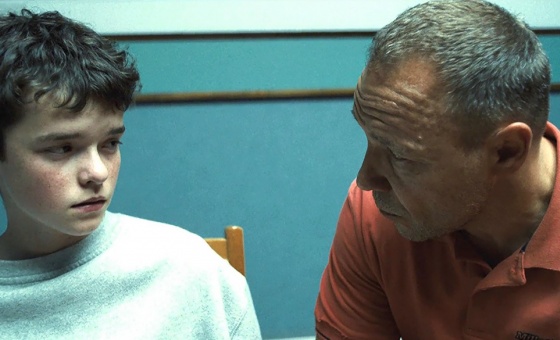This is the last article you can read this month
You can read 5 more article this month
You can read 5 more articles this month
Sorry your limit is up for this month
Please help support the Morning Star by subscribing here
Fred Ho and the Saxophone Liberation Front
Snake-eaters
(Mutable/Big Red Media)
AS I was sitting in the Barbican Concert Hall at last year’s London Jazz Festival, waiting for the start of Archie Shepp’s revival of his incendiary suite of 1972, Attica Blues, a fellow listener sitting next to me saw that I was writing notes and we began talking about the politics of jazz.
“If you do reviews, then make sure you review these!” he exclaimed.
And he listed on his programme some of the albums of the Chinese-American baritone saxophone revolutionary, Fred Ho.
Some of the records on his list I’d already reviewed here in the Star, but I’m grateful to him because our encounter reminded me that I’d recently been sent from the US a Ho album which I hadn’t tackled yet — with the evocative title Snake-eaters, by Fred Ho and the Saxophone Liberation Front.
So thank you, unknown fellow groover! The Saxophone Liberation Front is clearly inspired by the World Saxophone Quartet, and has a similar instrumentation.
Ho plays his baritone, the Iranian-American Hafez Modirzadeh , born in Durham, North Carolina, in 1962, plays soprano, Bobby Zankel, born in Brooklyn in 1949, plays alto saxophone and Salim Washington, an African-American born in Memphis, raised in Detroit and educated at Harvard, where he wrote a PhD on John Coltrane, is the tenorist.
Snake-eaters is composed of two suites — the first is Yellow Power, Yellow Soul Suite, the second is Beyond Columbus and Capitalism, with some other more ruminative tracks, beginning with the opener inspired by Curtis Mayfield’s song We are the People who are Darker than Blue, and called Darker Than Blue.
The crunching horn ensemble of the foursome, grounded by Ho’s earthen baritone and raised up by Modirzadeh’s exultant soprano is full of the breath of struggle and unity.
The first movement of the Yellow Power suite, Fishing Song of the East China Sea, is almost bird-like as it begins, but as the combined pitch of the saxophones dives and then morphs into the dancing second movement, Tanko Bushi, it moves from air to sea to land with waves of gasping energy.
Baeng Nori is more like a pacy march and Hero Among Heroes a reed salutation by four diverse Americans to Chinese warriors of freedom with powerful melodic lines and ensemble flourishes.
A more recent dragonic figure is celebrated in Jeet Kune D: The Way of the Intercepting Fist — Bruce Lee, a personification of the street-fighting spirit. There are snatches of melody, stomping harmonies and Modirzadeh’s flying solo soprano in this sonic portrait.
Tuneful adaptations of themes by two great African-American pianists follow. The first is an airy reading of Monk’s Reflections with Washington’s tenor then Zankel’s alto leaping out of the ensemble.
The second is another pianoless version of Erroll Garner’s Misty (Misty-ification).
It is all the tune, lucidly set down before the saxophones rise to a crescendo, and a last falling moment.
The punning titles of the four movements of Beyond Columbus and Capitalism point to the irony of many of its sounds and sequences.
The first is My God, My Gold: The European Invasion and a strangely vaunting sound emerges as the tenor seems to arrogantly push its way over the other horns before the soprano has the final word.
In Civilisation or Syphillisation the sudden changes of pace and agonised reed testimonies of soprano and tenor before Ho’s pumping message are telling a brutal imperialist story, and The New World Odor, with Ho’s gurgling solo and the squeezed, whining message of the other horns, essays the truth.
Ghost Dance on the Grave of Capitalism is the last movement and seems to swerve into Native American forms, with a call and response structure between Ho and his confreres, with the baritonist blowing the riff and the other horns springing around him, dancing and improvising in joy and creation.
A dream and plan in harmony — and not one that will fade away.







